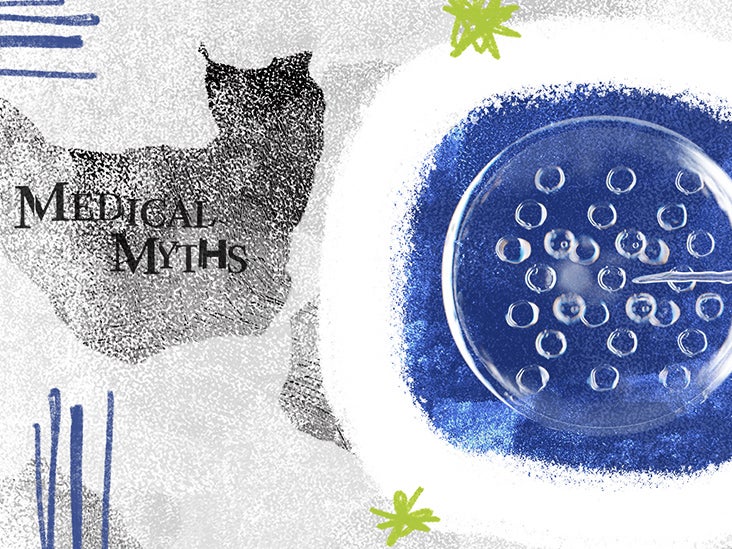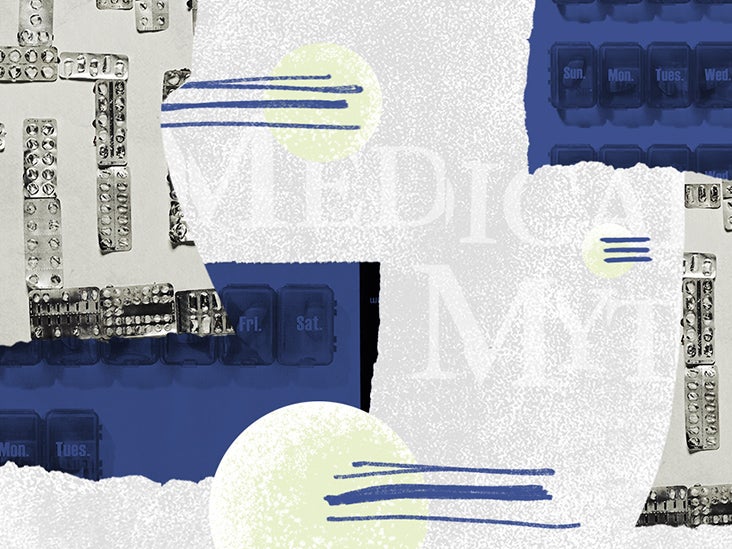acetaminophen oxycodone 325 mg

Cholesterol is an essential component of animal cell membranes; as such, it is synthesized by all animal cells. Regardless of its bad name, cholesterol is essential for life.
However, when present in high levels in the blood, it increases the risk of cardiovascular disease.
Cholesterol, amlodipine vs norvasc along with other substances, such as fat and calcium, builds up in plaques on the walls of arteries. Over time, this narrows the blood vessels and can lead to complications, including stroke and heart attack.
According to the Centers for Disease Control and Prevention (CDC), in 2015–2016, 12% of people aged 20 years or older in the United States had high cholesterol.
The World Health Organization (WHO) estimates that raised cholesterol levels are responsible for 2.6 million deaths each year.
Given such prevalence, it is no surprise that misinformation about cholesterol is rife. So, to help us separate fact from fiction, Medical News Today enlisted the help of three experts:
- Dr. Edo Paz, a cardiologist and vice president of Medical at K Health
- Dr. Robert Greenfield, a board-certified cardiologist, lipidologist, and internist at MemorialCare Heart & Vascular Institute at Orange Coast Medical Center in Fountain Valley, CA
- Dr. Alexandra Lajoie, a noninvasive cardiologist at Providence Saint John’s Health Center in Santa Monica, CA
1. All cholesterol is bad
As mentioned in the introduction, cholesterol is a vital component of cell membranes. Aside from its structural role in membranes, it is also vital in the production of steroid hormones, vitamin D, and bile acid.
So, although high levels are a risk factor for disease, without any cholesterol, we could not survive.
As Dr. Greenfield explained to MNT: “Cholesterol isn’t bad. It’s an innocent bystander that is being mishandled in our modern lifestyle today.”
“Our bodies weren’t designed to live in an environment where food was in excess, and so when cholesterol is in excess, it will be deposited in our body. And that deposit center can often be our blood vessels, and that’s when it’s bad for us.”
– Dr. Robert Greenfield
Beyond cholesterol’s functions in the body, the way in which it is transported also makes a difference to whether it is detrimental to health.
Cholesterol is moved around the body by lipoproteins, which are substances that consist of fat and protein. This transport occurs in two main ways.
Low-density lipoprotein (LDL) carries cholesterol from the liver to cells, where it is used in several processes. People sometimes term LDL “bad” cholesterol, because high levels of LDL cholesterol in the bloodstream increase the risk of cardiovascular disease.
High-density lipoprotein (HDL) is often referred to as “good” cholesterol, because it transports cholesterol back to the liver. Once there, cholesterol is removed from the body, thereby reducing cardiovascular risk.
2. I am a healthy weight, so I can’t have high cholesterol
“Oh, yes you can!” according to Dr. Greenfield. “Cholesterol balance is really a function of what we eat but also our genetics. For example, a person can be born with a genetic tendency to not process cholesterol efficiently.”
“Because it’s genetic,” he explained, “it has been called familial hypercholesterolemia, and it might be as common as 1 in 200 people. Weight is more a function of your inherited metabolism and the balance between calories consumed and calories expended.”
Dr. Paz concurred: “Even if you have a healthy weight, your cholesterol can be abnormal. Other factors that impact your cholesterol are the foods you eat, your exercise habits, whether you smoke, and how much alcohol you drink.”
Additionally, as Dr. Lajoie told us, people who have a healthy weight might have high cholesterol levels, while some people who have overweight may not have high cholesterol. “Cholesterol levels are affected by genetics, thyroid function, medications, exercise, sleep, and diet,” she explained.
“There are also factors that you cannot modify and which can contribute to high cholesterol, like your age and your genetics,” she continued.
3. I would have symptoms if I had high cholesterol
This is another myth. Dr. Paz told MNT: “In most cases, high cholesterol will not cause symptoms. That’s why it is recommended to get periodic blood testing to screen for high cholesterol. The age you start screening and the frequency of screening is determined by your individual risk factors.”
“The only ‘symptoms’ cholesterol can be associated with would be the late symptoms, when the excessive cholesterol accumulation is responsible for heart and blood vessel damage and blockage. This causes chest pain (angina), heart attack, or even sudden death,” said Dr. Greenfield.
Dr. Lajoie reiterated that high cholesterol “leads to silent buildup of plaque in arteries until it is so severe that strokes or heart attacks occur.”
4. If I eat lots of cholesterol, I will have high cholesterol levels
This topic is a little more complex than one might expect. “The cholesterol one consumes does not necessarily directly correlate with cholesterol levels,” Dr. Lajoie explained. “Eating sugars, [or] simple carbohydrates, can result in higher cholesterol levels, even if someone doesn’t eat much cholesterol.”
She also explained, “People who exercise are less likely to see elevations in cholesterol from eating cholesterol compared with sedentary people.”
According to Dr. Greenfield, if we consume more cholesterol, we will most likely increase cholesterol. He explained why:
“You don’t go to the store and buy a package of cholesterol, but you do buy red meat, cheeses, and eggs. Red meat contains saturated fat and cholesterol. Cholesterol is an animal product, so items that contain saturated fat will not only increase cholesterol but increase specifically the ‘bad,’ or LDL, cholesterol, which then gets deposited in the arterial wall of our blood vessels.”
![]()



5. Everyone should aim for the same cholesterol targets
“Not true!” Dr. Paz said, “Your target level of cholesterol is based on whether you have a history of certain diseases — like heart attack and stroke — and your risk of developing these issues, which is based on things like age and whether you have high blood pressure.”
In agreement, Dr. Greenfield told MNT, “The cholesterol guidelines published by the American Heart Association (AHA), the American College of Cardiology, and the National Lipid Association call that a false statement.”
He explained further: “For those of us who have not had any cardiovascular problems, the LDL cholesterol (the ‘bad’ cholesterol) should be less than 100 milligrams per deciliter (mg/dl). But if you have heart or vascular disease — history of heart attack, stroke, or other arterial vascular disease — and especially if you have diabetes, the LDL cholesterol target should be less than 70 mg/dl, if not lower.”
6. Only men need to worry about cholesterol levels
This is a persistent myth, but it is not true. Dr. Paz explained: “According to the CDC, during 2015–2018, the prevalence of high total cholesterol in U.S. adults was 11.4%. When considering men versus women, the prevalence of high total cholesterol was 10.5% in men and 12.1% in women.”
“Heart disease is an equal opportunity employer,” Dr. Greenfield agreed.
“Women, after losing the protective effects of estrogens, begin to accelerate their risk of heart disease and develop the same risk as men,” he explained.
“In fact, because women develop heart disease at a later age and live longer, more heart attacks are recorded in the female population than there are in men, annually.”
He also told us that when women do experience a heart attack, they tend to have worse outcomes, and that women are at a much higher risk of dying from heart disease than they are from breast cancer.
7. There’s nothing I can do about my cholesterol level
This, thankfully, is untrue. According to Dr. Paz, “Aside from taking medications to lower your cholesterol, you can also improve your cholesterol by maintaining a healthy weight, eating the right foods, exercising, avoiding smoking, and avoiding excessive alcohol use.”
“There is so much that can be done with an abnormally high cholesterol level,” Dr. Greenfield agreed.
“Diet and exercise are always the first steps and remain extremely important. Statins are very effective in lowering cholesterol and are safe. They have been around since 1987, with the newer statins associated with improved efficacy, safety, and less side effects.”
And scientists are continuing to innovate. Dr. Greenfield explained that “newer injectable PCSK-9 inhibitors have also been shown to dramatically lower cholesterol to levels that we’ve not seen before.”
They are also safe and cause few side effects, he told MNT.
8. I take statins, so I can eat what I want
“Wouldn’t that be nice if it were true,” began Dr. Greenfield, “but it isn’t. If you eat what you want and consume calories to excess, you will gain weight. When you gain too much weight, especially around your belly area, you can develop a condition called metabolic syndrome, which is a prediabetic state.”
He continued: “Statins are not weight reducing drugs. Their job is to lower the ‘bad’ LDL cholesterol, and your job is to treat your body with respect, which includes what you eat.”
9. I’m under 40, so I don’t need to have my cholesterol checked
“Although there is some debate about when to start screening for elevated cholesterol,” Dr. Paz explained, “many societies, such as the AHA, recommend screening as early as age 20.”
In agreement, Dr. Greenfield told MNT: “The longer your blood vessels are bathed in blood that contains too high a cholesterol level, your risk of cardiovascular disease later in life increases. The recommendations state that the first cholesterol check should be performed during teenage life, and if you have a strong family history, it should be checked sooner.”
For individuals with homozygous familial hypercholesterolemia, he told us, “cholesterol should be checked at age 2.“
The take home message
In summary, Dr. Greenfield had the following to say:
“I encourage my patients to ask questions and to research their medical conditions. But please be aware, there is a fair amount of ‘polluted’ material that is false and misleading.”
“Access reputable websites and believe the science published by people who have dedicated their lives to the treatment of heart disease,” he continued. “And if something sounds illogical and ‘too good to be true,’ it probably is. Treat your body as a sanctuary, not like an amusement park!”
After completing a bachelor’s degree in neuroscience at the U.K.’s University of Manchester, Tim changed course entirely to work in sales, marketing, and analysis. Realizing that his heart truly lies with science and writing, he changed course once more and joined the Medical News Today team as a News Writer. Now Senior Editor for news, Tim leads a team of top notch writers and editors, who report on the latest medical research from peer reviewed journals; he also pens a few articles himself. When he gets the chance, he enjoys listening to the heaviest metal, watching the birds in his garden, thinking about dinosaurs, and wrestling with his children.
You can follow Tim on Twitter.

![]()



Source: Read Full Article
